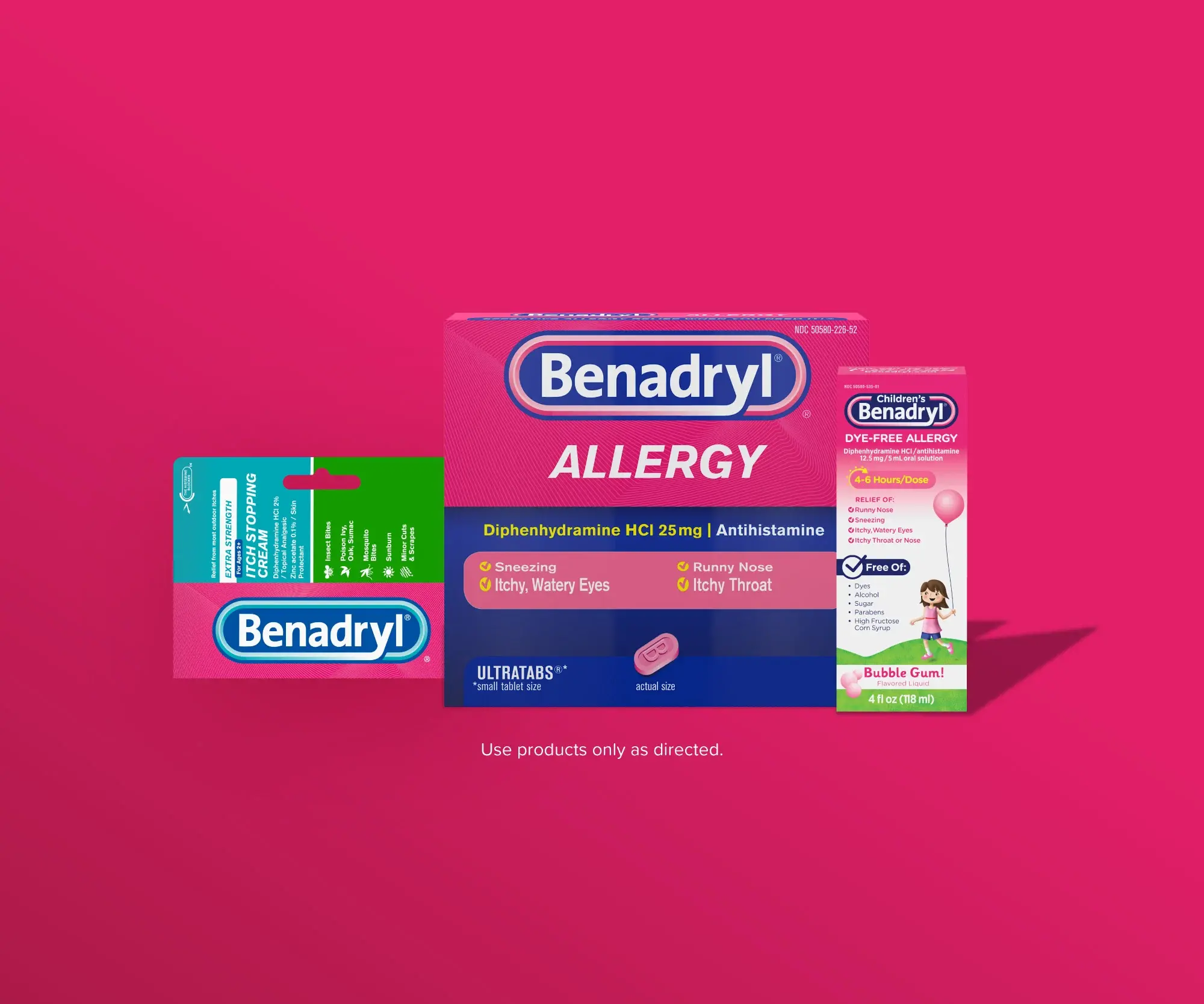Sore, itchy throats can be a real pain, whether they’re caused by allergies or the common cold. The discomfort can make it hard to focus, sleep, and enjoy your day.
This article is here to help. We’ll explore a range of tips and sore throat remedies that can provide relief, whether you’re dealing with the pesky symptoms of seasonal allergies or the sniffles and sore throat of a cold. By the end, you’ll have a better understanding of what’s causing the irritation and how to soothe a sore throat.
How To Soothe a Sore, Itchy Throat: Treatments & Remedies
Whether you’re dealing with allergies or a common cold, these home remedies and treatments for how to get rid of a sore throat can help ease your discomfort and get you back to feeling your best.
1. Drink Ginger Tea
Sometimes the best sore throat medicine is the simplest: a comforting, warm tea. Ginger tea is natural and soothing, with anti-inflammatory compounds1 that can help reduce swelling and irritation. To make an easy and effective ginger tea:
Ingredients:
1-inch piece of fresh ginger, peeled and sliced
2 cups of water
1 teaspoon of honey (optional)
1 lemon wedge (optional)
Directions:
Bring water to a boil in a small pot.
Add the sliced ginger and let it simmer for 10-15 minutes.
Strain the tea into a cup.
Add honey and a squeeze of lemon for extra flavor and soothing benefits.
2. Use Cough Drops
Another straightforward sore throat treatment? Cough drops. They can provide immediate relief by lubricating your throat and reducing irritation. Look for drops that contain peppermint or eucalyptus, as these ingredients can help soothe and calm your throat.2,3 Keep a pack handy and use them as needed throughout the day.
3. Consume Honey
Honey is a natural remedy that has been used for centuries to soothe sore throats. Its antibacterial and anti-inflammatory properties can help reduce pain and irritation.4 You can add a teaspoon of honey to your tea, mix it with warm water, or simply eat it straight from the spoon. For children under 1 year old, avoid giving honey due to the risk of botulism.
4. Use a Humidifier
Dry air can exacerbate throat irritation, making it more difficult to breathe and causing discomfort. Using a humidifier makes a great home remedy for itchy throat, as it can add moisture to the air. Place a humidifier in your bedroom or living area and run it during the night or when you’re at home.5
5. Gargle Salt Water
Gargling with salt water can help reduce throat pain and inflammation.6 The salt helps draw out excess fluid and can kill bacteria that might be causing your symptoms.7 To make a saltwater gargle:
Ingredients:
½ teaspoon of salt
8 ounces of warm water
Directions:
Dissolve the salt in the warm water.
Gargle the solution for 30 seconds.
Spit it out and repeat as needed.
6. Eat Popsicles or Ice Chips
Sucking on popsicles or ice chips can provide temporary relief by numbing your throat and reducing inflammation. Choose sugar-free options to avoid additional sugar intake.8
7. Steam Inhalation
If you're searching for how to get rid of itchy throat without leaving your house, inhaling steam can help moisturize your throat and reduce congestion. You can do this by taking a hot shower or using a bowl of hot water.9
8. Use a Saline Nasal Spray
A saline nasal spray or rinse can assist with keeping your nasal passages moist, which may help lessen irritation in your throat.10
9. Take BENADRYL® for Symptom Relief
When looking for itchy throat remedies, consider purchasing over-the-counter medications like BENADRYL®. Here are a few options:
BENADRYL® Extra Strength Allergy Relief: These tablets are designed to provide fast, effective temporary relief from allergy symptoms with 50 mg of Diphenhydramine HCl.
BENADRYL® Allergy Dye-Free LIQUI-GELS®: These gel capsules are dye-free and can be taken every 4-6 hours.
Children’s BENADRYL®: For kids, this liquid formula is easy to administer and can help temporarily relieve allergy symptoms.
Ways To Reduce the Risk of a Sore, Itchy Throat
Preventing a sore, itchy throat is often easier than treating one once it occurs. By taking a few simple steps, you can reduce your risk of developing this uncomfortable condition. Here are tips for how to prevent sore throat:
1. Wash Your Hands Often During Cold and Flu Season
One of the most effective ways to prevent a sore, itchy throat is to keep your hands clean. Cold and flu viruses can spread easily through contact with contaminated surfaces. Washing your hands frequently with soap and water for at least 20 seconds can help eliminate these germs. If soap and water are not available, use an alcohol-based hand sanitizer.11
2. Get Lots of Rest
Adequate rest is crucial for maintaining a strong immune system. When you’re well-rested, your body is better equipped to fight off infections that can cause a sore throat. Aim for 7-9 hours of sleep per night and try to reduce stress, which can also weaken your immune system.12
3. Drink Plenty of Fluids
Staying hydrated is essential for keeping your throat moist and reducing the risk of irritation. Drink plenty of water throughout the day and consider herbal teas and broths as well. Avoid excessive consumption of caffeine and alcohol, as they can dehydrate you and make your throat more susceptible to dryness and irritation.11
4. Avoid Common Irritants
Exposure to irritants can increase the likelihood of developing a sore, itchy throat. Here are some common irritants to avoid:13,14
Cigarette smoke: Both active and passive smoking can irritate your throat and increase the risk of infections.
Dust and pollen: Keep your living and working spaces clean to minimize dust and pollen exposure. Use air filters and consider staying indoors on high-pollen days.
Strong odors: Avoid strong perfumes, cleaning agents, and other harsh chemicals that can irritate your throat.
5. Maintain Good Oral Hygiene
Keeping your mouth and throat clean can help prevent infections that cause sore throats. Brush your teeth at least twice a day, floss daily, and use a mouthwash to kill bacteria. Failing to brush your teeth can promote the growth of bacteria in your mouth and throat, which can elevate your risk of developing an infection.15
6. Eat a Balanced Diet
A diet rich in vitamins and minerals can support your immune system and help prevent infections. Include plenty of fruits, vegetables, lean proteins, and whole grains in your meals. Foods high in vitamin C, such as oranges and strawberries, can be particularly beneficial.16
References
Shaukat MN, Nazir A, Fallico B. Ginger Bioactives: A Comprehensive Review of Health Benefits and Potential Food Applications. Antioxidants. 2023; 12(11):2015. https://doi.org/10.3390/antiox12112015
Mulyaningsih, S., Sporer, F., Reichling, J., & Wink, M. (2011). Antibacterial activity of essential oils from Eucalyptus and of selected components against multidrug-resistant bacterial pathogens. Pharmaceutical Biology, 49(9), 893–899. https://doi.org/10.3109/13880209.2011.553625
Rajinder Singh, Muftah A.M. Shushni, Asma Belkheir, Antibacterial and antioxidant activities of Mentha piperita L., Arabian Journal of Chemistry, 8(3), 322-328. https://doi.org/10.1016/j.arabjc.2011.01.019
Almasaudi S. The antibacterial activities of honey. Saudi J Biol Sci. 2021;28(4):2188-2196. doi:10.1016/j.sjbs.2020.10.017
National Institutes of Health. Soothing a Sore Throat, What To Do When Your Throat Hurts. Accessed March 10, 2025. https://newsinhealth.nih.gov/2023/11/sore-scratchy-throat
CDC. Sore Throat Basics. Accessed Feb 21, 2025. https://www.cdc.gov/sore-throat/about/index.html
Science Focus. Why does salt have antibacterial properties? Accessed January 23, 2025. https://www.sciencefocus.com/nature/why-does-salt-have-antibacterial-properties
Mayo Clinic. Sore throat. Accessed Feb 21, 2025. https://www.mayoclinic.org/diseases- conditions/sore-throat/diagnosis-treatment/drc-20351640
Cleveland Clinic. 6 Sore Throat Remedies That Actually Work. Accessed Feb 21, 2025. https://health.clevelandclinic.org/sore-throat-remedies-that-actually-work
UCLA Health. Risks and rewards of nasal rinses: What you need to know. Accessed Feb 21, 2025. https://www.uclahealth.org/news/article/risks-and-rewards-of-nasal-rinses-what-you-need-to-know
CDC. Healthy Habits to Prevent Flu. Accessed Feb 21, 2025. https://www.cdc.gov/flu/prevention/actions-prevent-flu.html
Robinson CH, Albury C, McCartney D, et al. The relationship between duration and quality of sleep and upper respiratory tract infections: a systematic review. Fam Pract. 2021;38(6):802-810. doi:10.1093/fampra/cmab033
Cleveland Clinic. Relief When Allergies Give You a Sore Throat. Accessed Feb 21, 2025. https://health.clevelandclinic.org/allergies-cause-sore-throat
American Lung Association. Improve Indoor Air Quality. Accessed Feb 21, 2025. https://www.lung.org/help-support/corporate-wellness/create-a-lung-healthy-work
CDHP Dental Health Project. Teeth Guides. Accessed Feb 11, 2025. https://www.cdhp.org/can-you- get-a-throat-infection-if-you-don-t-brush-your-teeth/
Harvard School of Health. Nutrition and Immunity. Accessed Feb 21, 2025. https://nutritionsource.hsph.harvard.edu/nutrition-and-immunity/
Links to other parties’ articles and websites are provided for convenience only. Kenvue is not responsible for their content.



